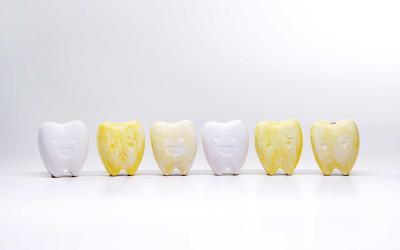Care Recommendations for Sensitive Teeth

Care Recommendations for Sensitive Teeth
- 27 May 2024
- 3332 views
Care recommendations for those with tooth sensitivity! Discover ways to keep your teeth healthy with special tips and practical recommendations.
This content is for informational purposes only and does not replace medical advice, diagnosis, or treatment. Please consult a healthcare professional for any health concerns.
Table of Contents
Sensitive teeth are a common issue affecting many people. Various factors such as enamel erosion, gum recession, and extreme sensitivity to hot or cold foods and beverages can contribute to tooth sensitivity. Therefore, tooth sensitivity can make daily life difficult and hinder enjoyment from eating or smiling.
Causes of Sensitive Teeth
Tooth sensitivity can arise from various reasons. Some of these reasons include:
- Enamel Erosion: Tooth enamel is the outermost layer of your teeth and serves to protect them from decay. Over time, factors such as acidic foods and beverages, abrasive toothpaste, and hard toothbrushes can erode tooth enamel. This can lead to exposure of the dentin layer beneath the enamel, causing sensitivity.
- Gum Recession: Gum recession involves the pulling back of your gums, exposing the roots of your teeth. Dentin, a more sensitive layer, is present in the roots. When exposed, it can lead to sensitivity to hot, cold, sweet, or sour foods and beverages.
- Tooth Fracture or Cracking: Tooth fracture or cracking can expose the dentin layer, leading to sensitivity.
- Teeth Whitening Treatments: Teeth whitening products can temporarily irritate or erode the enamel and dentin layers, causing sensitivity.
- Certain Dental Fillings: Some dental fillings can irritate the dentin layer, leading to sensitivity.
Symptoms of Tooth Sensitivity
Tooth sensitivity can manifest in various symptoms, including:
- Sharp, sudden pain when consuming hot, cold, sweet, or sour foods and beverages
- Pain while brushing teeth or using dental floss
- Sensitivity to cold air or cold beverages
- Throbbing or pulsating sensation in the teeth
Care Recommendations for Sensitive Teeth
For individuals experiencing tooth sensitivity, here are some care recommendations. By following these recommendations, it's possible to effectively manage the issue of sensitive teeth:
- Use a Soft-Bristled Toothbrush and Fluoridated Toothpaste: Hard-bristled toothbrushes and abrasive toothpaste can erode tooth enamel and increase sensitivity. Brush your teeth gently with a soft-bristled toothbrush and fluoridated toothpaste.
- Brush Twice Daily: Brush your teeth twice a day for two minutes each time. Remember to brush your teeth before bedtime.
- Use Dental Floss: Dental floss helps remove food particles and plaque between your teeth. This can help prevent gum inflammation and tooth decay, thereby reducing tooth sensitivity.
- Use Mouthwash: Using fluoridated or antiseptic mouthwash can help strengthen your teeth and kill bacteria in the mouth.
- Use Toothpaste and Mouthwash for Sensitive Teeth: There are specialized toothpaste and mouthwash products available for sensitive teeth. These products contain ingredients that help protect tooth enamel and reduce sensitivity.
- Regularly Visit Your Dentist: It's important to visit your dentist every six months for a check-up. Your dentist will evaluate the condition of your teeth and gums and identify the cause of sensitivity. If necessary, your dentist may recommend professional treatments to strengthen your teeth or treat gum recession.
- Use a Mouthguard Recommended by Your Dentist to Reduce Sensitivity: Your dentist can create a custom mouthguard to protect your teeth and reduce sensitivity while you sleep.
If you have sensitive teeth, it's important to consult your dentist to create a personalized care plan. This plan will address the underlying cause of sensitivity and help maintain the health of your teeth and gums.
Remember, there are many things you can do to care for your sensitive teeth. By following these recommendations and regularly visiting your dentist, you can manage sensitivity and enjoy a happier and healthier smile.







